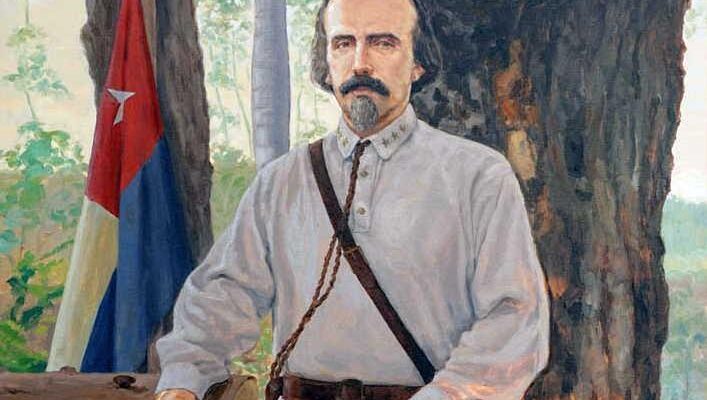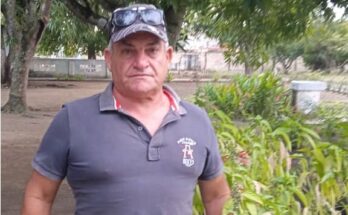On this day in 1874, in an unequal confrontation with Spanish soldiers, Carlos Manuel de Céspedes y del Castillo, the Cuban revolutionary lawyer who started the wars for the emancipation of Cuba against the Spanish colonial regime, proclaimed on October 10, 1868 his determination of independence or death and the freedom of his slaves, died in the San Lorenzo farm, in the Sierra Maestra.
A virile Cuban who was the landowner and marched to the combat to the cry of ¡Viva Cuba Libre!, and after the failure in the attack to the town of Yara, and before the defeatist spirit of some, he stood up on his horse and replied ¡All we still have 12 men left; they are enough to make the independence of Cuba!, which began the patriotic tradition of the Cubans to continue the fight after a defeat.
On February 27, 1874, Carlos Manuel de Céspedes played his last game of chess against José Lacret Morlot, captain of the Liberation Army, prefect of San Lorenzo; it is in this place where he settled after his deposition, waiting for an answer from the government to his request to be granted a passport to go abroad.
Manuel Sanguily, colonel of the Liberation Army, summarized the symbolism of Céspedes’ death when he described it with poetic words: «Céspedes could not allow that he, the sovereign incarnation of the sublime rebellion, be taken in triumph by the Spaniards, imprisoned and tied up like a delinquent. He accepted alone, for brief moments, the great combat of his people: he faced with his revolver to the enemies that were overcoming him, and mortally wounded by an opposing bullet, he fell into a ravine, like a sun of flames that sinks into the abyss».
Thus ceased to exist the initiator of the independence struggles against the Spanish colonial regime, the man who is considered by Cubans as the Father of the Homeland; who was Major General of the Liberation Army and the first President of the Republic of Cuba in Arms.
His corpse was taken by the Spaniards to Santiago de Cuba, where he was buried in a common grave, but a group of revolutionaries rescued and transferred his remains to a second grave to prevent them from ending up in a common ossuary and to make his aspiration come true “that my bones rest next to those of my parents, in this beloved land, after having served my homeland until the last day of my life”.





